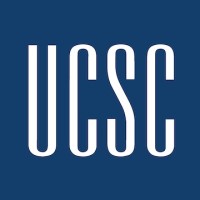Master of Fine Arts in Environmental Art and Social Practice (Masters)
UC Santa Cruz
Santa Cruz, CA
The Master of Fine Arts (M.F.A.) in Environmental Art and Social Practice (EASP) is a unique graduate program that trains students to critically analyze, understand, and respond to the challenges of our contemporary era through creative artistic inquiry and project-based research. The two-year program is designed for the student who seeks a career in the field of environmental art and social practice artmaking as these forms relate to environmental justice, social justice, public policy, and multimedia art practices, criticism, and theory. One of the first of its kind in the country integrating this dual focus, the program builds on the unique intellectual reputation of UC Santa Cruz as a leader in promoting social justice, ecological thinking, and inventive explorations of the nature/culture interface, and contributes to this ongoing legacy through the world-transforming potential of creative practice.
The field of environmental and social practice artmaking continues to develop rapidly in relation to the urgency of social and environmental pressures, requiring artists to learn new tools and strategies for effective engagement in society at large, along with important aspects of traditional artistic training. Within this frame, the program invites students to utilize a breadth of approaches, art mediums, research methods, theoretical frameworks, and technologies ranging from the traditional to the most contemporary, with the understanding that all media can be relevant in developing new approaches and responses to environmental and social issues. The program’s interdisciplinary emphasis also encourages students to engage with other departments, divisions, centers, and faculty across the university to deepen and enrich their research, and to partner with groups and organizations outside the university in the development and execution of their projects.
Graduates of the program find employment in the art world and in academia as well as qualifying for job opportunities in hybrid and developing fields, including in green technology, environmental policy, public arts policy, community planning, public space design, and other forms of advising and design where creative approaches to problem-solving is called for. Depending on the focus of their thesis project, graduates’ access to academic positions is not limited to art practice fields, but may include political theory, humanities, and social issue curricula, as well as hybrid and cross- disciplinary art programs linked with science, social science, and the humanities. Graduates may also work as arts administrators in a variety of institutions or seek employment in curatorial positions, journalism, research, and editorial positions, as well as in audio-visual production and in the digital economy. Some graduates may also work as self-employed artists or in unique positions that defy existing job categories and are specifically tailored to their skills and interests.
Objectives
The M.F.A. in Environmental Art and Social Practice program supports the development of a student’s artistic practice in relation to issues and contexts relevant to these two related areas of study. The program aims to train students in practical skills as they relate to project-based arts research in the areas of: creative methodologies, critical analysis, historical perspectives, ethical standards, collaborative strategies, reflective critique, and art pedagogies.
Students learn to conceive and execute projects, articulate narratives to support their ideas, and establish working relationships with other practitioners in the field. They develop methods, perspectives, and concepts to support lifelong artistic inquiry and thriving careers, and to contribute to, and further develop, the emergent fields of environmental art and social practice.








